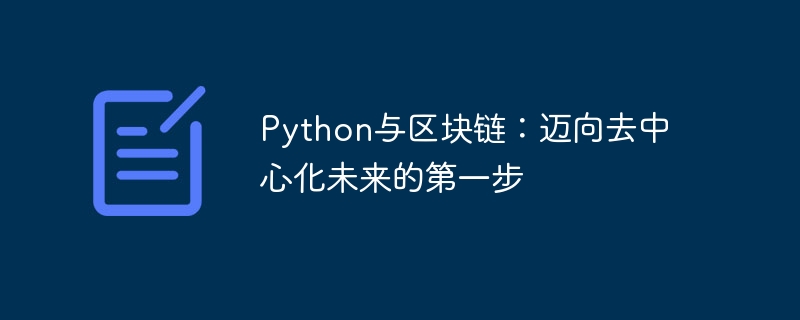

Smart contract development: python is one of the preferred languages for smart contract development. Its readability and versatility make it easy to create complex and secure smart contracts. Using Python, developers can easily define contract rules, specify trigger conditions and perform specific actions.
Blockchain interaction:Python provides a wide range of libraries and modules that enable developers to interact with various blockchainnetworks. For example, the WEB3.py library allows developers to connect to the Ethereum network, perform transactions and query the blockchain status.
Data analysis and visualization:Blockchain networks generate large amounts of data, requiring efficient data analysis tools. Python's data processing and visualization tools enable developers to easily analyze blockchain data, discover trends and create informative charts and visualizations.
dApp Development:Decentralized applications (dApps) are applications built on the blockchain. Python provides an ideal environment for developing dApps as it supports seamless interaction with blockchain networks and allows rapid prototyping.
Benefits and Advantages:
Python is a powerful tool towards a decentralized future. Its ease of use, versatility, and strong community support make it the language of choice for blockchain developers. By leveraging Python, developers can easily create smart contracts, interact with blockchain networks, analyze data, and build dApps to contribute to the decentralized future.
The above is the detailed content of Python and Blockchain: The first step towards a decentralized future. For more information, please follow other related articles on the PHP Chinese website!




